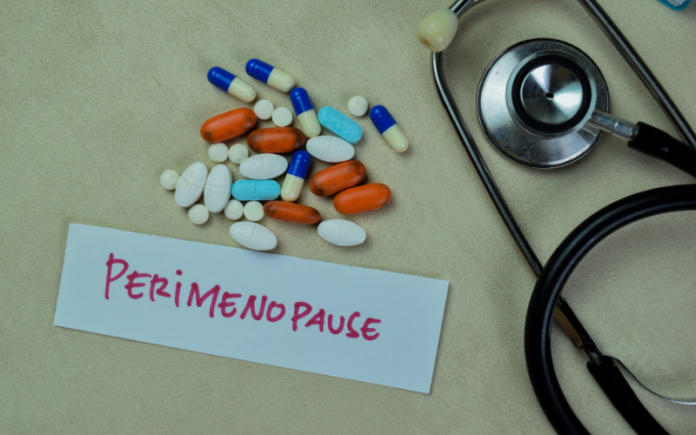What Is Perimenopause
A woman is around menopause: referring to the time during which your body shifts naturally to menopause making the end of reproductive years, it is also known as the menopausal transition.
During this transition, the ovaries produce less hormones, causing the menstrual cycle to be irregular. At this time, your body is making a shift toward the end of your reproductive years.
Perimenopause may begin around your mid-30s or as late as your mid-50s. Some women in perimenopause deal for a short time but for many it lasts four to eight years. The term perimenopause means when your cycles are no longer predictable.
Your lifestyle is a lot responsible for your health, signs and symptoms of menopause. Women feel differently about their bodies and face Uro-genital symptoms. Menopause in women starts at different ages. Some women notice changes in their 40s some may get it in mid 30’s. Estrogen levels, the female hormone in your body falls and rises evenly during perimenopause. Once you have achieved 12 consecutive months without a menstrual period, this means that you have reached the final stage of Menopause and the Perimenopausal period is over. Throughout the transition, women’s bodies feel subtle changes and go through various signs and symptoms of Perimenopause. Let’s learn more about the various symptoms of perimenopause so that you are familiar with this transition phase.
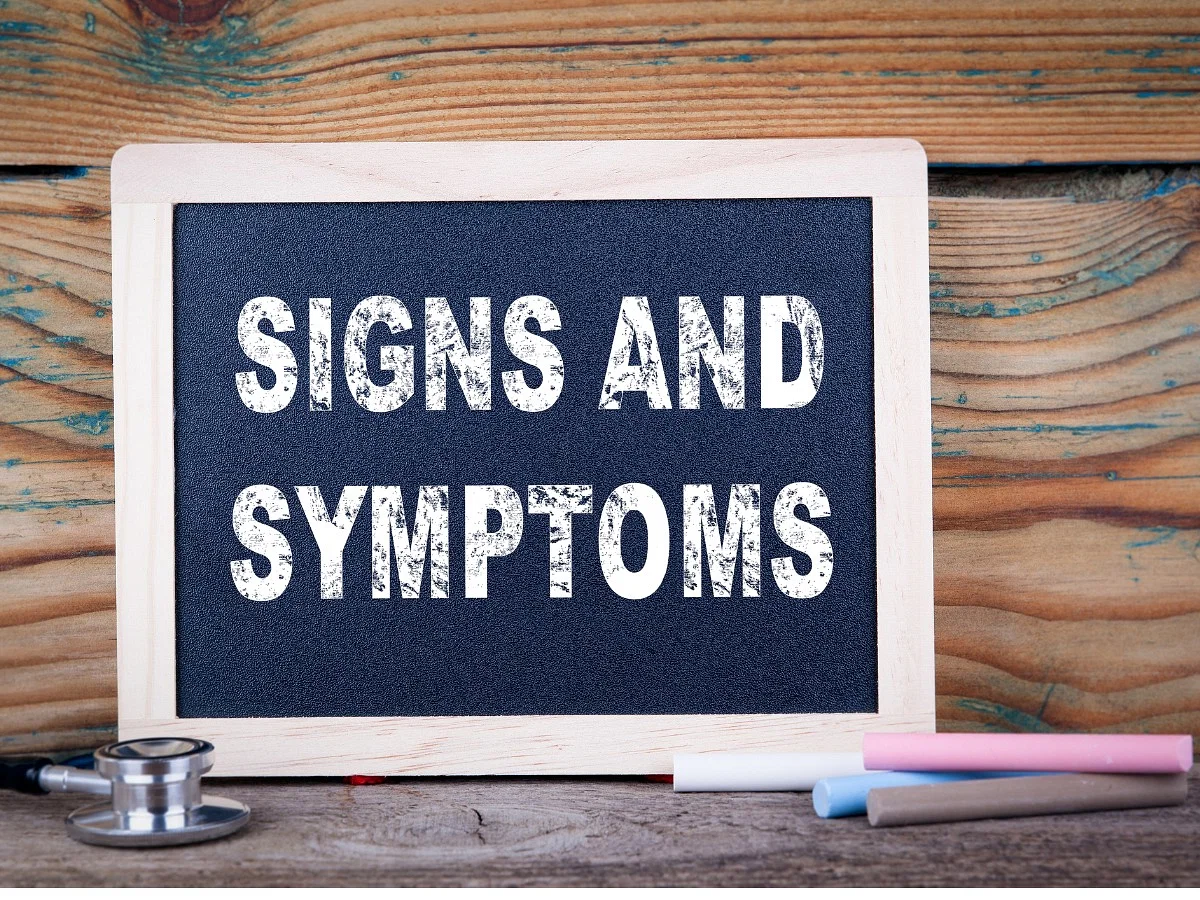
What Are The 34 Symptoms of Perimenopause
-
Hot Flashes
Among What Are The 34 Symptoms Of Perimenopause, it is the most common symptom. The intensity and frequency of these hot flashes may vary. It may cause someone to suddenly feel hot, sweaty and flushed in the face, neck and chest region. Sometimes sleep becomes difficult and a person may feel uncomfortable.
-
Irregular Periods
As you begin to age, you reach a perimenopausal stage where you experience irregular periods. You may experience shorter periods, delayed periods, heavy flows, or light flows. Sometimes you may skip periods. If you experience 7 day gap in your period cycle, then you are in the early phase of perimenopause and if you experience 60 days of gap in your periods then you are in the later phase of perimenopause.
-
Mood Swings
Among 34 symptoms of perimenopause, it is the one common symptom that a woman experiences. As you begin to age, you begin to experience the symptoms of perimenopause. You feel more irritated, annoyed and at increased risk of depression. This can happen due to disrupted sleep. Retardedness and other factors that are not associated with hormonal changes of perimenopause.
-
Breast soreness
It is the most common indication of symptoms of perimenopause. Breast tenderness occurs due to high levels of estrogen. It feels like burning or soreness due to delayed periods. Breast soreness occurs naturally. You may feel it in one breast or both breasts. Breast soreness is common in menstruation but breast pain and discomfort occur when you are in the face of perimenopause
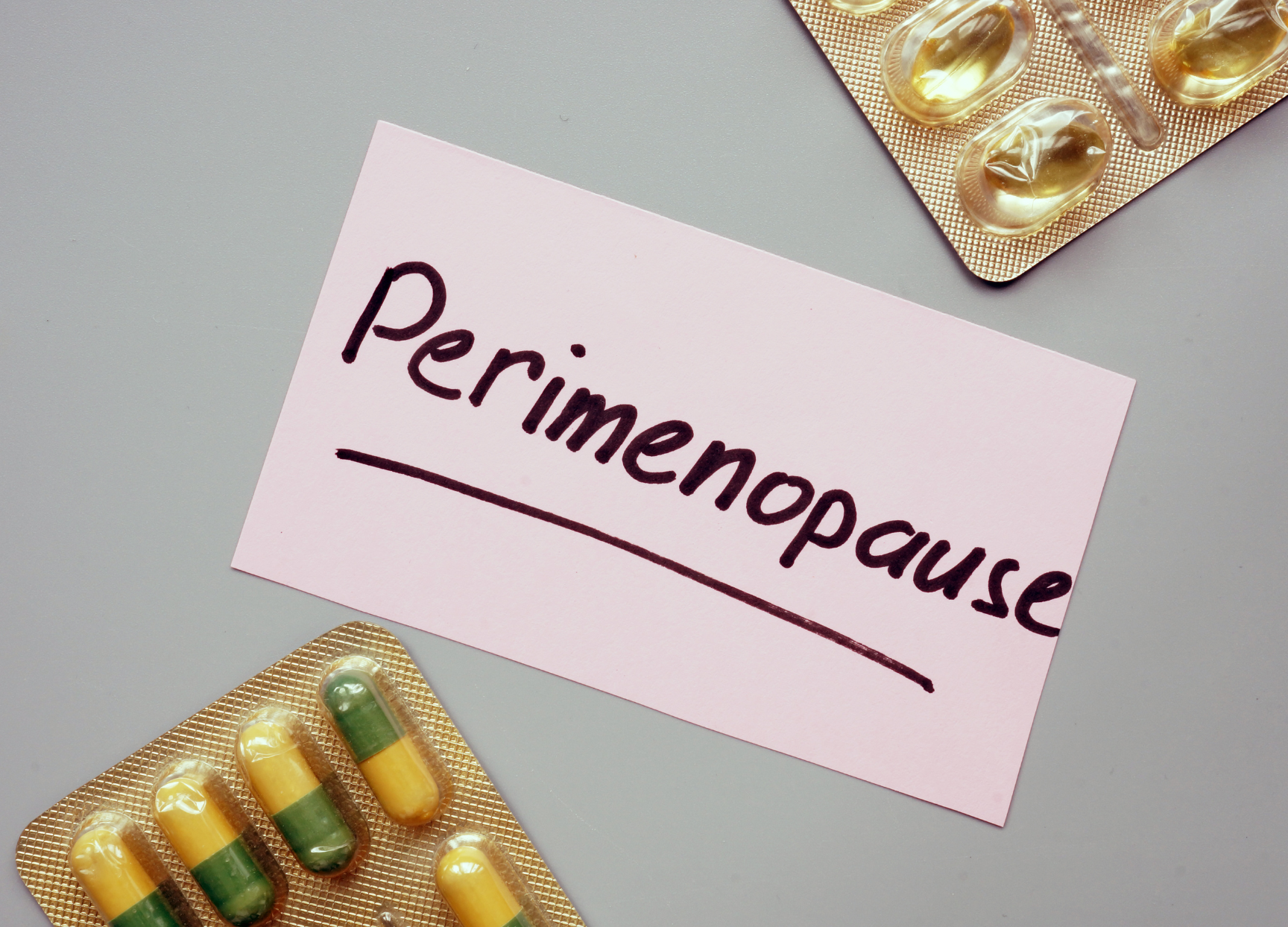
-
Decreased libido
At young age, you are at the peak of sexual drive and want to get involved more in sexual activity. However, during menopause, women experience failure in lovemaking or sex drive. It causes physical and emotional changes in a woman’s life which also affects their sex life. While going through a period a woman may experience no libido or lesser sexual thoughts, no fantasies and physical changes that affect the enjoyment of sex.
Know more on 7+ Signs A Woman Has Not Made Love For A Long Time.
-
Vaginal dryness
It is another sign of perimenopause. The vaginal tissues become thin and are easily irritated which occurs due to the natural decline of estrogen levels in your body. Vaginal dryness can occur at any stage of life but it is the most common symptom of Perimenopause. Dryness occurs in the vulva due to low levels of estrogen and vaginal walls are not well moisturized. There are several women who report problems with vaginal dryness that can occur in women of age 18 to 40. This happens before perimenopause takes place or over after menopause.
-
Headaches
Due to low levels of estrogen in your body, you may feel a throbbing pain on one side of your head. You may become sensitive to light and sound, and headaches in women start when they reach the age of menopause. While some women may continue to experience the headache even after Menopause, if you still do not feel well you can reach your doctor for medical help.
-
Recurring UTIs
The most annoying symptom. Several women experience the recurrence of UTI. It is the most common among What Are The 34 Symptoms Of Perimenopause. There are reports suggest that 19 to 36% of menopausal women experience recurrent UTI however the rate increases to 55% after menopause.
Read more to learn How To Stop Burning Sensation After Urinating
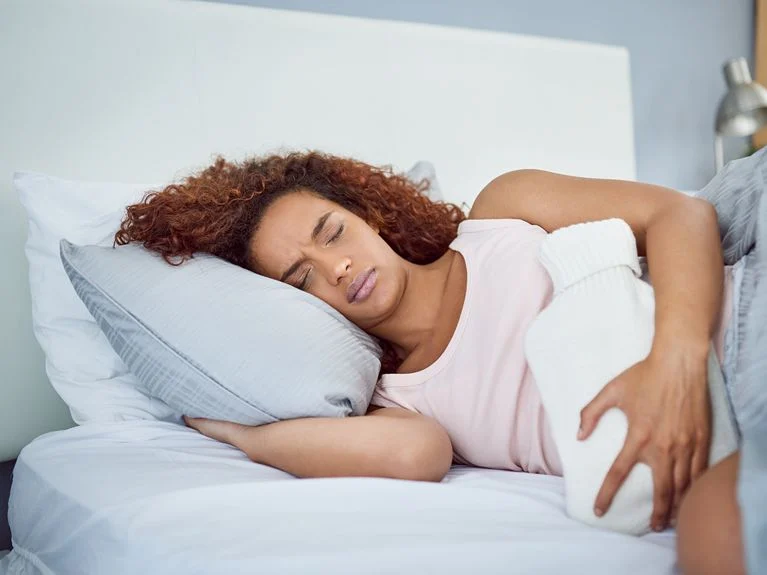
-
Burning mouth
This happens to women most commonly particularly when they experience perimenopause. It affects one-fifth of women, especially in the age group of 50. A burning mouth is described as a burning or tingling sensation affecting different areas of the oral cavity, including the tongue, palate, lips and areas of denture support. Hormonal changes during perimenopause contribute to discomfort.
-
Changes in taste
Women have to go through a lot in their lives, especially through their body menstruation, perimenopause and menopause. In the perimenopause phase, the mouth may become dry and you may produce saliva due to which you may have change in your taste. 1 in 3 women in perimenopause can experience a change in taste, the fluctuating estrogen levels cause dry mouth and reduced production of saliva.
-
Fatigue
Due to a variety of reasons a woman can feel fatigued and retardedness. There are a variety of reasons that cause hormonal changes and bodily changes. Sleep disruption is the main cause of fatigue, physical and emotional distress can make a person feel tired this also happens due to hormone fluctuation. In the perimenopause phase, you may go through uneasy mornings, you may feel troubled to go through the entire day. You may feel a lack of concentration, sleepy eyes and tiredness in your body.
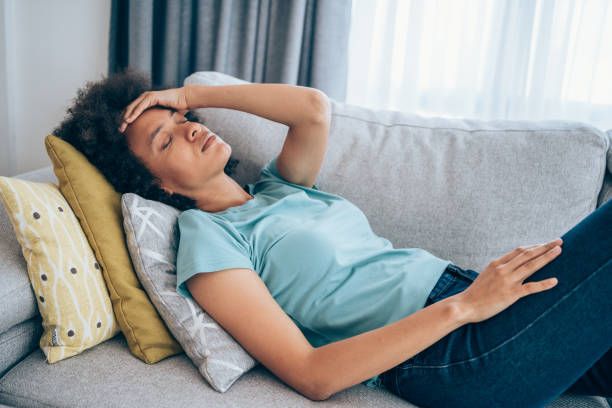
-
Acne
It is the most common symptom of perimenopause. The lack of estrogen and testosterone in the body can cause Issues like loss of hair, facial hair growth, changes in sebum production, and skin dryness as well. Hormonal acne especially occurs around the mouth, chin and jawline these appear as black dots on the surface of the skin or red bumps with white heads.
-
Other digestive changes
Perimenopause is a transition phase in a woman’s body. Several women can experience bloating, abdominal pain, and changes in bowel habits before and after their periods. During perimenopause and menopause, this happens due to the decrease in hormones like estrogen and progesterone. A woman can feel increased Gastrointestinal symptoms like bowels discomfort, abdominal pain, bloating and alteration in Bowel patterns.
Know more on Mechanism Of Digestion: How Long Does It Take To Digest Food
-
Joint pain
Among 34 symptoms of Perimenopause joint pain is the most painful symptom of this phase. The estrogen levels reduce, joints may swell and become painful, and other factor that contributes to the symptom is osteoporosis, decreasing estrogen levels results in loss of bone density or a shooting sensation in your joints.
-
Muscle tension and aches
Due to lack of hormones like estrogen and progesterone in perimenopausal women, they can experience pain in muscles and stiffness in the joints. Muscle tension and aches can occur in any phase.
-
Electric shock sensations
In perimenopause, it is not well-related to the brain and central nervous system. When estrogen levels fluctuate and decline, the message it sends to the brain can be short-circuiting. ESS is generally considered harmless and short-lived. It is also considered a signal of an imminent hot flash.
-
Itchiness
The hormonal changes that occur during perimenopause cause discomfort in your body. It is a well-known symptom. Changes in skin occur in some women, which causes the skin to lack collagen and natural oil, leading to thinning. This happens due to the loss of estrogen as it is related to the production of collagen, an essential building block of the skin.
-
Sleep Disturbances
When the perimenopausal period begins, hormone levels change and decline. Women experience disruptive sleep. Irregular periods are also the main cause of sleep disturbance. By developing a proper bedtime routine, making a regular sleep schedule, and avoiding afternoon naps, women can improve their sleep quality.

-
Difficulty in concentrating
It is a common symptom of the perimenopause period where women find it difficult to concentrate on things and work. This happens due to fluctuations in their hormones.
-
Memory lapses
When your body produces less estrogen, women may experience mild memory problems and general forgetfulness. The symptom is temporary.
-
Thinning hair
When women are in the transition phase of perimenopause and menopause, they experience a drop in hormone levels that causes hair loss. Around 40% of women can experience hair loss during the menopausal period. Thinning of hair starts during perimenopause or occurs many years after.
-
Brittle nails
Due to the decline in collagen levels and keratin production, brittleness in nails symptoms are common.
-
Weight gain
As women begin to age, staying at a normal weight becomes impossible. It is a common symptom. Women gain weight before menopause. By following a regular exercise routine, it can help them to get rid of weight gain symptoms.
-
Stress incontinence
Due to weak pelvic floor muscles, women experience leakage of urine while coughing, laughing, sneezing, or lifting objects. This incontinence is common during perimenopause, but this phase doesn’t last long because of menopause.
-
Dizziness
Change in your hormone levels can lead to dizziness, and periods become irregular. This phase can last anywhere between 4 to 8 years when menstruation will stop entirely. It occurs typically at the age of 40 to 48. Women who are in the perimenopause transition experience dizziness, dryness, depression, anxiety, and insomnia. Allergies: Symptoms of allergies like itching, coughing, and sneezing are common in perimenopause and menopausal stages. Bloating, stomach pains, indigestion, and water retention also happen due to allergies.
-
Osteoporosis
During the ageing period, your bone density declines, which results in a gradual loss of bone mass. Once this reaches a certain point, a person has osteoporosis. Women over the age of 50 are at greater risk of developing osteoporosis. They have lighter, thinner bones and longer lifespans.
-
Irregular heartbeat
Changing hormone levels can cause changes in your heartbeat.
Palpitations occur when you experience hot flashes. Repetitions are short-lived. They may last for a few seconds or for a few minutes.
-
Tinnitus
It’s a distressing symptom of perimenopause. It’s not common to experience hearing changes in the leading days of menopause. During menopause, levels of estrogen and progesterone decline, which can affect the auditory system and contribute to tinnitus.
-
Irritability
You may feel terrible with this symptom of perimenopause. You may feel irritated all the time. You may have low energy, feel tearful, and moody, and you may also find it difficult to concentrate on your daily routine.
-
Depression
During the ageing phase of a woman’s life, perimenopause is the transition period when she experiences several bodily changes that affect her physical and mental health. She may go through serious depression that may cause an adverse impact on her family and social life. To go through this symptom, she must consider doctor’s advice to stay healthy and respond well to the changes.

-
Terrible Anxiety
When estrogen production fluctuates, anxiety levels can rise naturally in the transition phase. But you must take some steps to lower the stress and anxiety levels to keep yourself calm. Women can feel terrible during this phase. Perimenopause and anxiety are two tough things, and it may feel like having a nervous breakdown.
-
Panic disorders
A lot happens during the perimenopause period. A woman goes through anxiety and panic attacks. The reproductive hormone levels fluctuate before menopause, which causes or can cause anxiety and panic attacks. Among What Are The 34 Symptoms Of Perimenopause, panic attack is the most devastating. A woman can feel nervous, irritable, and restless. She may have trouble relaxing.
What are the signs of coming to the end of menopause?
Things women can do to ease menopause.
Let’s learn about various natural things women can do to ease aches and pains.
Keep yourself hydrated
It’s the best way to manage your pains while dealing with menopause. Pain, drinking plenty of water throughout the day reduces pain and protects your joints and muscles. Hydration keeps the cartilage soft and pliable. If you stay dehydrated for long hours and it’s a consistent process, then dehydration pulls fluids from your tissues that cause body aches and pains. Drinking water is the easiest way to reduce menopause pains. Increase your daily intake of water and fluids to improve your health. It also provides relief from hot flashes and night sweats.
Balance your blood sugar levels
As you grow old, it may invite some disease to your body so it’s your responsibility towards your body to keep things under your control. Mainly keeping your blood sugar levels balanced. It helps the hormones in balance. Maintain your blood sugar spikes and drops. Reduce stress from your body. A healthy exercise regime can manage stress, blood sugar fluctuations, ease brain fog, poor sleep, weight gain, mood swings, body aches, pain, tiredness, and anxiety during menopause. If blood sugar levels are not balanced, it will increase menopause pains as muscles and nerves become sensitive with less movement and lesser movement in muscles, it will heighten the pain levels. Balancing blood sugar level spikes and drops is the best thing women can do to ease menopause pain.
Improve your diet
Food is an essential element for your body. It is necessary that you eat healthy and good food every day at the perimenopausal stage. Your body needs essential nutrients, vitamins, and minerals. Providing a little good food every day will save you from chronic conditions and add protein and fibre to your diet. Consuming a high-fibre meal is the best thing women can do to ease pains with growing age. Eating healthier is a great choice. Consume healthy fats in your diet while dealing with menopause pain. You can include food such as fatty fish, flax seeds, chia seeds, and avocado. Your body absorbs essential nutrients from the food and reduces the frequency and severity of menopause pains. Cut off processed food and carbohydrates from your diet. Consume plenty of fruits and vegetables to keep hormone levels healthy. You must also reduce caffeine intake and alcohol consumption as it is pretty bad for women’s bones and hormones.

Add natural phytoestrogens to your diet
Phytoestrogens are plant-derived estrogens that can be obtained from foodstuffs such as fruits like plums, apple grapes, and berries and from vegetables like beans, sprouts, cabbage, spinach, soybeans grains, hops, garlic, and onions. The plant-based phytoestrogens are beneficial in fighting symptoms and conditions caused by estrogen deficiency. It is particularly beneficial for perimenopausal women. It boosts hormonal balance and counteracts with menopausal impact.
Follow an anti-inflammatory diet
It is the easiest way a woman can ease menopause pain and consume a diet that includes food rich in omega-3 fatty acids. It also includes food, vegetables, and fruits rich in unsaturated fats like avocados, fatty fish, nuts, and olive oil. Eating a healthy diet eases pain in later life. Try to consume more protein from plant-based food rather than consuming it from meat, eat more cruciferous vegetables such as broccoli, cut off processed foods, sugar, and carbohydrates, following a diet is good for health and reduces inflammation in the body.
Try Turmeric
It is an ancient medicine that has been benefiting people since it’s known for its medicinal properties. With the ageing problem in women, there comes menopause. Which is also alarming and increases the chances of developing health issues. Turmeric contains healing and nurturing properties. It has powerful antioxidative, anti-inflammatory, antidepressant, and anticancer properties.
Make sure you are getting enough Vitamin D. It is an essential element for your body. If you live in a place where you do not get enough sunshine then you must consume Vitamin D supplements as advised by your medical service provider. Low levels of vitamin D or deficiency cause joint pains and stiffness consuming vitamin D eases your way to deal with menopause pain and other symptoms.
Magnesium
Consuming magnesium also helps with easing menopause pain in women. It provides relief from stiffness and joint and muscle pain. It plays a vital role in your life, and consuming magnesium reduces unwanted side effects of menopause.
The easiest way you can get through menopause pain is by changing your lifestyle. Increase your walking. Do not spend much time sitting. Try to do your work on a standing desk or take regular breaks. Walking is the new medicine.

